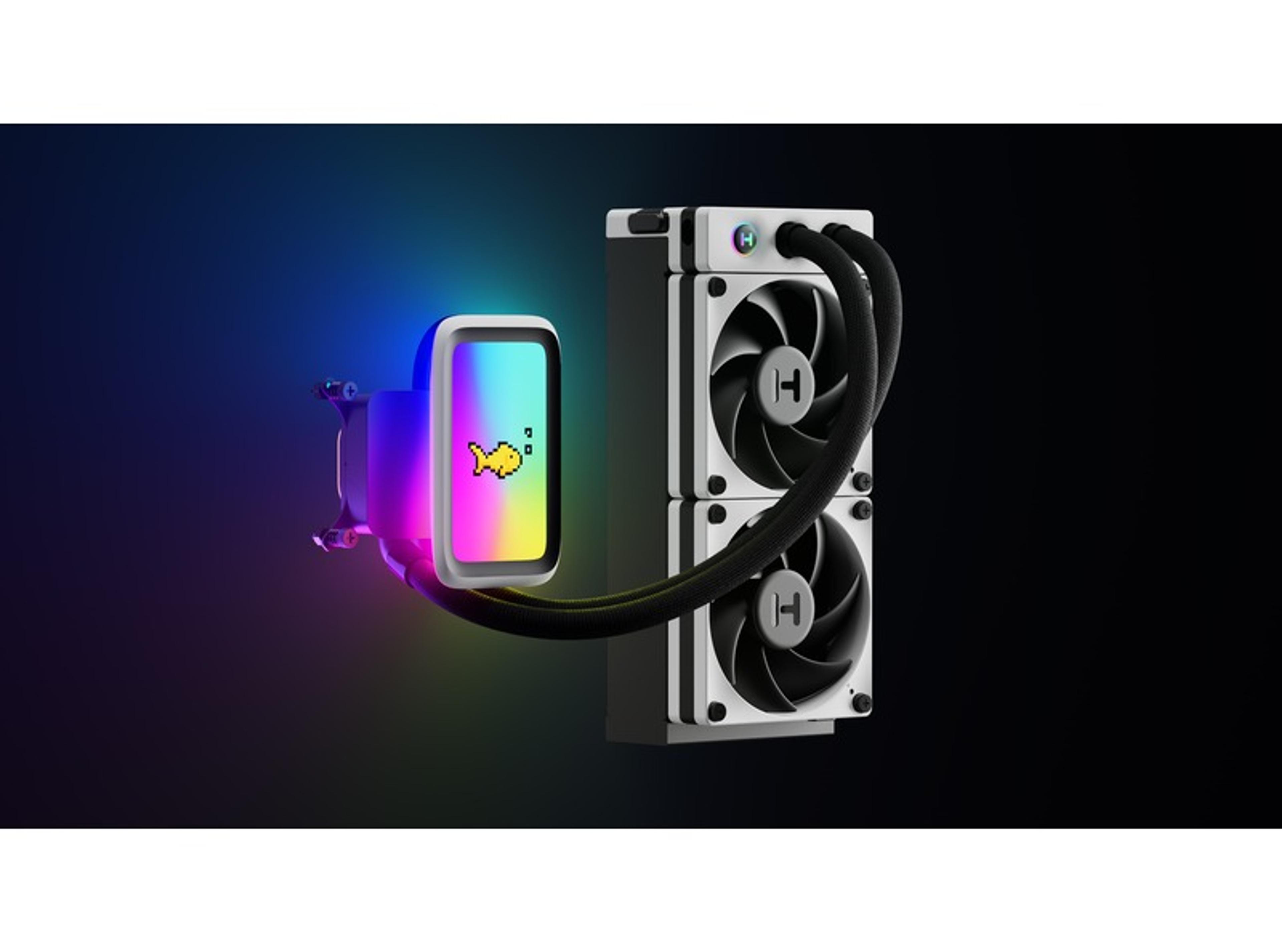
Liquid Cooling vs. Air Cooling: What's Best for Your Gaming Rig?
For a gaming PC to perform correctly, it needs a cooling system to prevent issues such as overheating. There are two different cooling systems to choose from: liquid cooling and air cooling.
Choosing between air versus liquid cooling for a PC depends on various factors, so understanding the benefits and drawbacks of each cooling system can help with the decision-making process.
What is Liquid Cooling?
When comparing liquid or water cooling versus air cooling, liquid cooling is considered one of the most effective cooling systems due to the coolant's high thermal conductivity. A liquid cooling system comprises water blocks, a pump, a radiator, pipes, and, optionally, a reservoir. The pump propels the liquid coolant through the system, circulating it to and from a radiator via the water block affixed to the CPU. Here, the heat generated by the CPU transfers to the circulating coolant, which is then continuously cycled throughout the system.
There are two main options for liquid cooling: All-in-One (AIO) coolers and custom loops. AIO coolers are pre-assembled units whose process is closer to an air cooler. Custom loop cooling allows personalized configurations to optimize performance and visual aesthetics.
Liquid cooling is best for gamers who need superior thermal performance for hardcore gaming and overclocking. It offers notable advantages over air cooling, including sleek aesthetics and enhanced thermal load handling capabilities. With a closed-loop system and efficient heat transfer facilitated by a pump, liquid cooling is a top choice among hardcore gamers and PC enthusiasts.
What is Air Cooling?
Air cooling for gaming PCs is a cost-effective and reliable method for dissipating heat generated by components, mainly the CPU. This cooling system utilizes a combination of fans and heatsinks to manage thermal energy efficiently.
The process begins with heat generated by the CPU being transferred from its Integrated Heat Spreader (IHS) through a layer of thermal paste to a conductive baseplate, typically made of copper or aluminum. From there, the thermal energy travels through heat pipes designed to conduct heat effectively. These heat pipes then transfer the heat to a heatsink, which is elevated off the motherboard to free up space for other components, such as RAM. The heatsink, consisting of thin metal fins, maximizes exposure to cooler air. An attached fan pushes air over the heatsink, absorbing heat from the metal and expelling warm air away from the CPU.
The effectiveness of air cooling varies depending on the materials used in construction, alongside the size and number of fans attached to the CPU heatsink. Despite these variations, air coolers are favored for their simplicity and cost-effectiveness when comparing air cooling versus liquid.
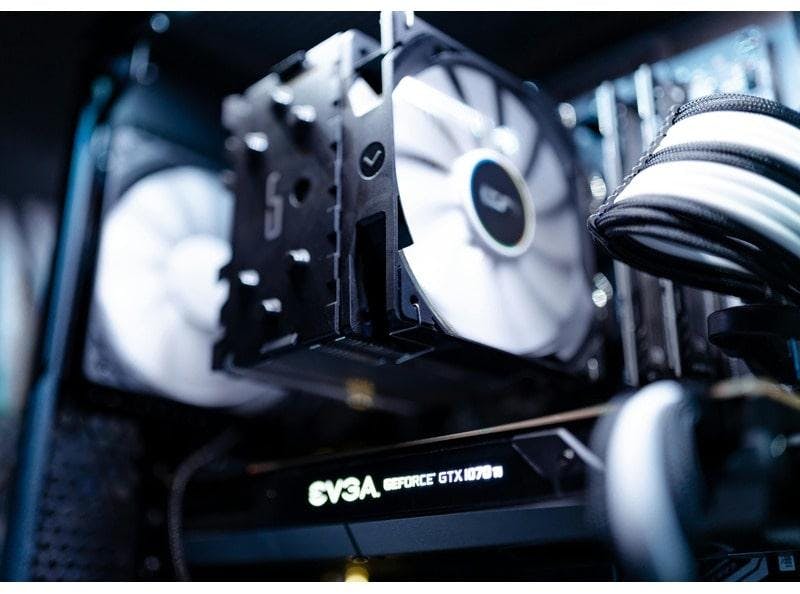
Comparing Air Cooling vs Liquid Cooling
When choosing an air cooler versus a liquid cooler for your system, consider various factors, such as performance needs and budget. Other factors to consider are price, ease of installation, and aesthetics.
Performance
Regarding performance, liquid cooling systems stand out for their superior efficiency in dissipating heat. These systems can handle high thermal loads, ensuring stable temperatures even under demanding conditions such as rendering videos or streaming. They can also relocate heat outside the system through radiator fans, helping maintain a cooler overall environment that is quieter than air coolers.
Price
When considering the price of cooling solutions for PC setups, air cooling is more budget-friendly than liquid cooling. Although custom liquid cooling systems are generally more expensive, AIO liquid coolers offer a compromise for gamers who want a more affordable liquid cooling option.
Installing the Cooling System
When installing an air cooler versus a liquid cooler, air coolers offer a straightforward and user-friendly experience. The ease of use makes air coolers a better option for beginners. Unlike liquid cooling setups, air coolers don't require users to deal with the complexities of handling liquid coolant or the potential risks of leaks.
AIO liquid coolers are easier to set up than custom loops but still require careful attention to detail. It's necessary to properly position an AIO cooler's water block, hoses, and radiator to facilitate efficient heat dissipation. Custom liquid cooling loops provide greater flexibility for customization and expansion, but the installation process is more time-consuming and requires meticulous attention.
Maintaining the Cooling System
Maintenance needs are another critical factor in the liquid cooling versus air cooling debate. Air cooling systems generally demand less upkeep, typically involving periodic dust removal from the PC every few months for efficient airflow and performance. Air coolers are also often perceived as more reliable due to their simpler design and fewer components, mitigating the risk of failure associated with liquid cooling systems.
Conversely, maintaining a custom liquid cooling setup is more intricate, requiring maintaining the proper fluid levels, regularly cleaning components, and preventing potentially catastrophic failures. On the other hand, AIO cooling systems have few maintenance needs and a lower risk of leakage than custom setups, as they come pre-assembled.
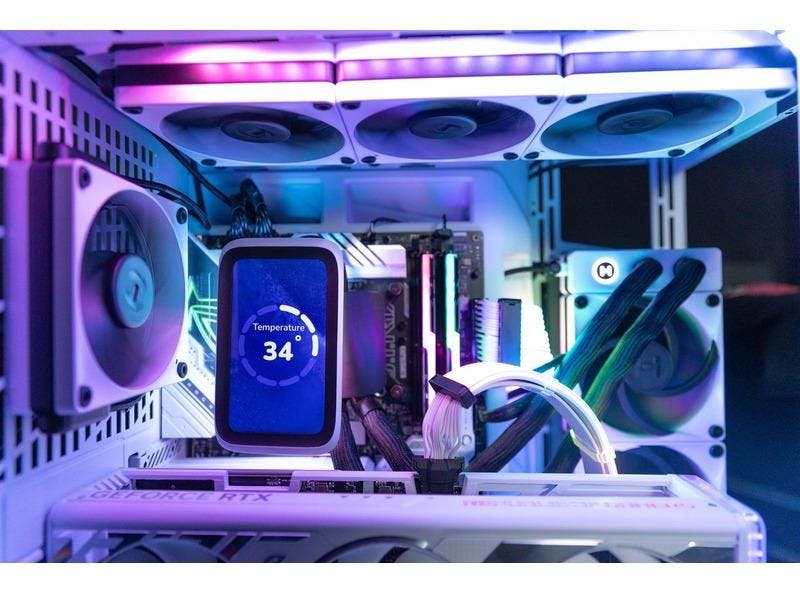
Aesthetics
One final factor to consider when comparing air cooling versus liquid cooling is aesthetics. Air cooling systems often feature bulky heat sinks, which detract from a gaming PC’s visual appeal and offer limited customization options.
Liquid cooling systems have more opportunities for customization to present a sleek and visually striking appearance. Incorporating RGB elements, LCD screens, and customizing components for a unique and eye-catching system is more accessible with a liquid cooling system.
Liquid Cooled vs. Air Cooled PC: The Final Decision
Ultimately, the decision regarding liquid cooling versus air cooling is up to you and your gaming needs.
Liquid cooling is generally the more popular option, especially for hardcore gamers who want a gaming PC that can handle overclocking. Water cooling systems are also more popular due to their customization options and visually appealing appearance.
However, air cooling systems are great for anyone new to PC building, especially if they are looking for a reliable, budget-friendly cooling system that generally requires less maintenance. Gamers who aren’t worried about overclocking or about the aesthetics of their gaming PC are also fans of air coolers.
Where to Find a Cooling System for Your Gaming PC
Finding the best cooling system for your gaming PC is crucial no matter what side you’re on in the air cooling versus liquid cooling debate.
If you’re looking for the best cooling system for your gaming rig, check out HYTE’s selection. From case fans to other hardware components, HYTE has everything you need to ensure your gaming PC performs at the highest level possible.
Featured Posts

Black Friday Gaming Gear & PC Deals 2025
HYTE Black Friday sales are here, and we’re excited to share the amazing deals we’ll be offering this year! Our Black Friday sales event is your chance to save big on some of our most popular products. From November 20th through December 2nd, enjoy incredible discounts on PC cases and gaming accessories that bring both performance and style to your setup. If you’re looking to upgrade, now’s the perfect time to do it with HYTE.
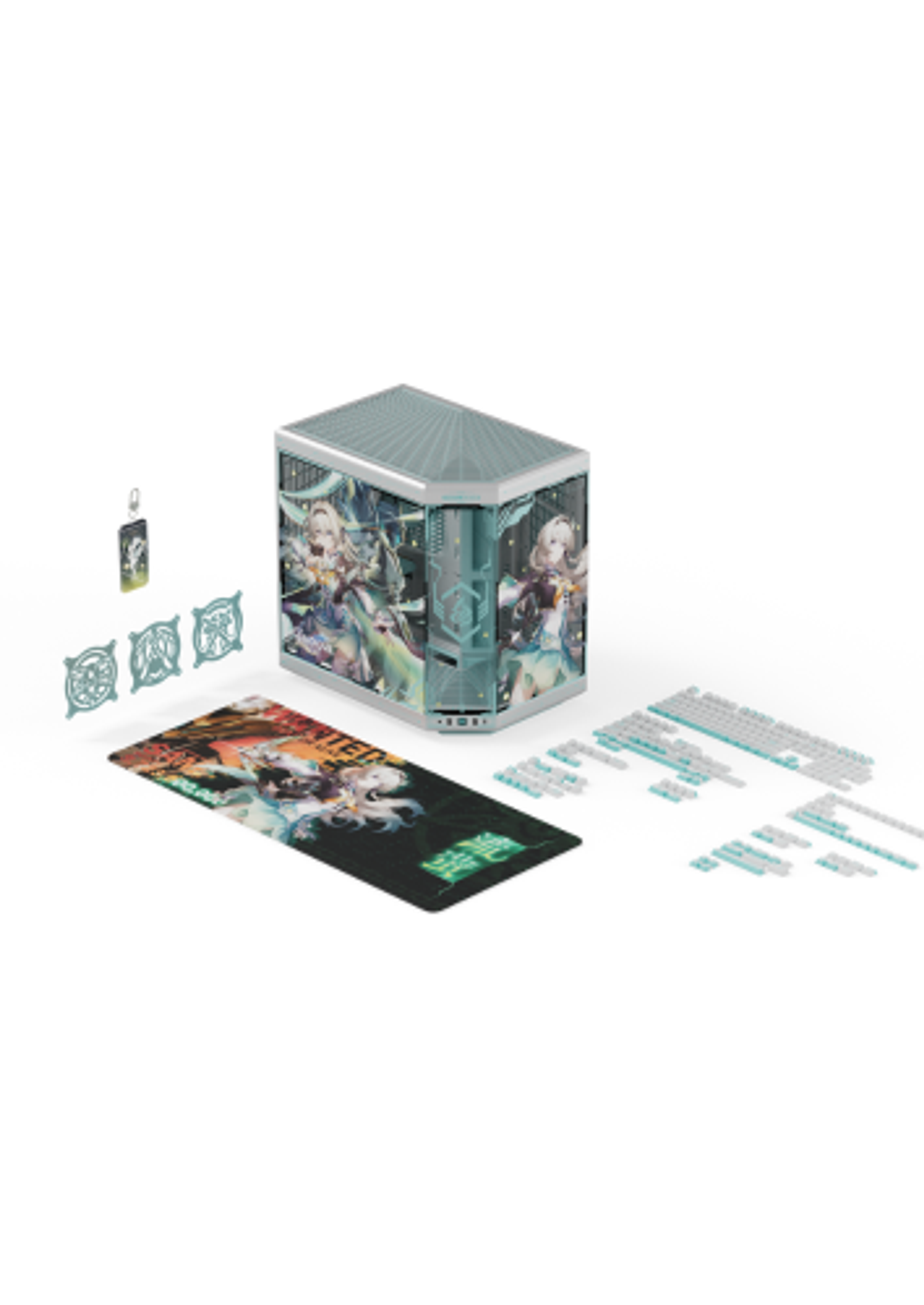
Official HYTE x Honkai: Star Rail Firefly Collection!
The stars have aligned, and the Official HYTE x Honkai: Star Rail Firefly Collection is ready for launch.
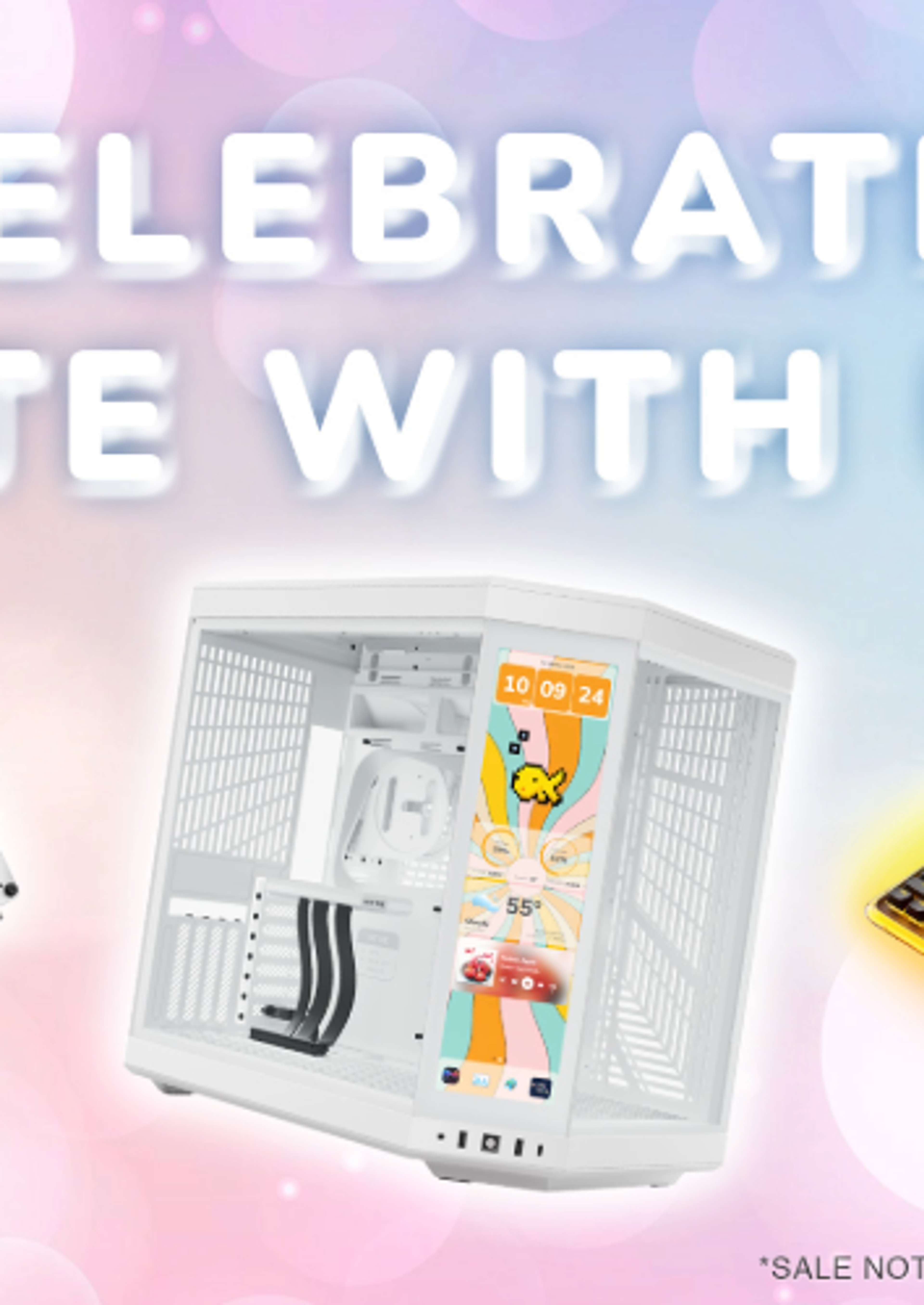
HYTE's 4th Anniversary Sale!
We’ve come a long way, and it’s all thanks to you! To celebrate HYTE’s anniversary, we’re giving back with a limited-time Anniversary Sale from Oct. 5 to Oct. 7.

HYTE X50 & X50 Air Pre-Orders Are Now Live!
The X50 redefines typical PC cases with a unique curved design and performance-driven elements. Pre-order the X50 and X50 Air NOW!
